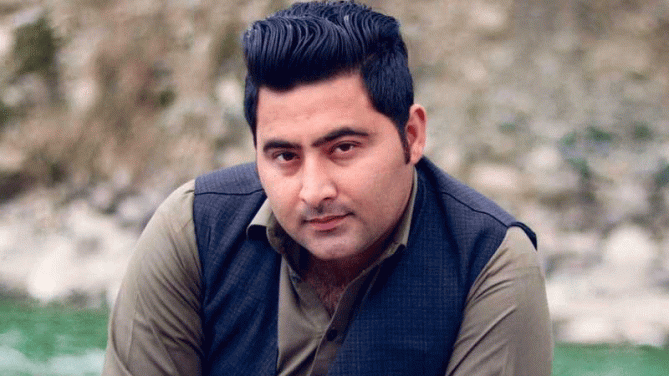Mukto-Mona is saddened to learn that Mashal Khan, a twenty-three years old student was shot and brutally beaten to death by a mob that included fellow students on April 13, 2017. He was accused of blasphemy. Mashal, who called himself "The Humanist" on Facebook, was a student at Abdul Wali Khan University in the Khyber Pakhtunkhwa province in Pakistan.
Mashal was killed in a university, a place of learning, where freedom of thought should not just be tolerated, it must be cherished and protected. But what we are seeing in Pakistan and elsewhere, intolerance of any criticism of religion, particularly Islam; is encouraged in the name of 'hurting one's feelings'. The government officials and political leaders routinely speak about taking strong actions against 'blasphemy'.
Mashal and his fellow students were engaged in developing their intellects in a place of higher learning where students should be taught to think and express their minds. It was reported that Mashal's social media postings show him as a progressive student who was deeply concerned about human rights and equality, and the intolerance in our society.
According to his friends and teachers Mashal had a humanistic and secular outlook, with a curious mind, which is natural for a twenty-three year old even in a county like Pakistan. Unfortunately, what has become normal in Pakistan nowadays is grave intolerance of secular and humanistic views. The fact that Mashal and one of his friends (who survived the attack) were dragged down from their dormitory rooms by a mob to kill in broad daylight speaks volumes about the grave condition of intolerance prevailing in Pakistan.
With great disappointment, we have noticed just a few days before Mashal Khan's murder, Pakistani Prime Minister Nawaz Sharif voiced his support for a wide-ranging crackdown on blasphemous content on social media. In a statement he described blasphemy as an "unpardonable offence". This kind of statements from persons in power emboldens intolerance and encourages fanatics to take laws in their own hands.
We have witnessed similar killings in Bangladesh in recent years. Avijit Roy, Mukto-Mona's founder and author of several books, was killed in Dhaka in February 2015. Several others were also killed in an identical manner subsequently. Avijit and his fellow Bangladeshi humanist writers and bloggers were simply expressing their thoughts and curiosities in social media. And, in Bangladesh too, just as we are seeing in Pakistan, the government created a culture of lawlessness and immunity to killers in the name of protecting religious feelings of people.
And now, very predictably, the authorities are paying lip service and vowing to round up and bring the killers to justice. But if a society is not capable of tolerating opposing viewpoints, accommodating curiosity of young minds, and upholding the freedom of expression, it is doomed to fail.
As long as there is a blasphemy law or anything similar, religious fanatics will continue to believe that it is their duty to kill those who commit blasphemy and they can do this with impunity.
We demand justice and appropriate punishment of the killers of Mashal Khan. But more importantly, we want, in Pakistan, Bangladesh and all around the world, a social order that guarantees freedom of expression, encourages healthy intellectual and philosophical debates, and protects those who are not afraid of criticizing religious dogmas and superstitious beliefs.
We demand that the anti-blasphemy law in Pakistan, anti-freedom of expression act in Bangladesh (ICT Act 57) and other similar thought-stifling laws elsewhere in the world be abolished immediately.
April 16, 2017
